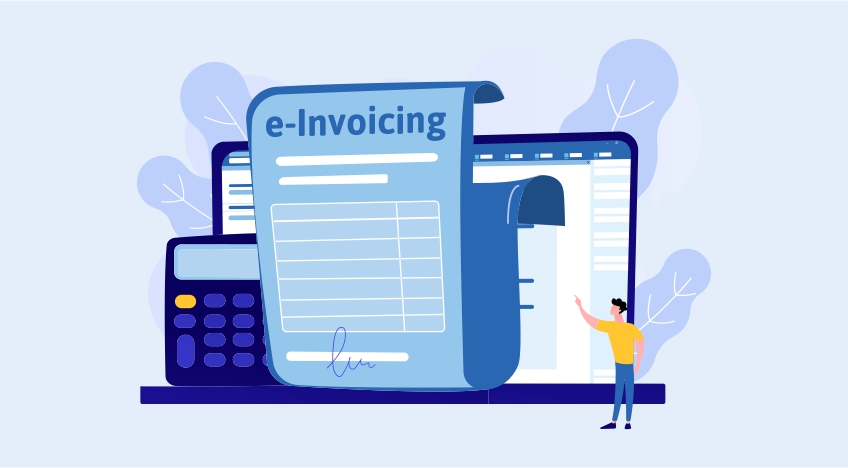The UAE Ministry of Finance has introduced a significant update in financial transactions: mandatory eInvoicing. This development aims to streamline business transactions and improve financial transparency and accuracy across all sectors. Here, we provide a comprehensive overview to help you understand and prepare for this change.
What is eInvoicing?
eInvoicing is a digital process where invoices are exchanged between suppliers and buyers in a standardized, electronic format. Unlike traditional methods, this system is automated, ensuring a seamless and efficient handling of invoices. eInvoicing reduces the need for manual data entry, mitigates errors, and enhances the overall processing speed of transactions.
What Qualifies as an eInvoice?
For an invoice to be classified as an eInvoice, it must meet the following criteria:
Structured Data Format: The invoice must be created, transmitted, and received in a structured electronic format, enabling easy data exchange and integration.
Automated Electronic Processing: The invoice format should be compatible with systems capable of automatic processing, ensuring quicker and more accurate transactions.
What is Not Considered an eInvoice?
Several formats do not qualify as eInvoices under the new mandate. These include:
Unstructured Files: PDF, Word documents, or image formats (such as JPG, TIFF).
Scanned Invoices or OCR Versions: Paper invoices scanned or processed with Optical Character Recognition (OCR) do not meet the requirements.
HTML Invoices on Web Pages or Emails: Invoices sent as HTML are not valid.
Paper-Based Invoices: Hard copies, including those sent by fax or as images, are not accepted as eInvoices.
Key Functions of eInvoicing:
The eInvoicing system emphasizes two core functions essential for compliance:
Creation with Correct Structure
Every eInvoice must be generated using a pre-defined, structured format that aligns with regulatory standards. This ensures that the invoice contains all necessary information and follows an approved layout.
Electronic System-to-System Transfer
The eInvoice should be electronically transferred directly from the seller’s system to the buyer’s system. This eliminates manual handling, reduces the likelihood of errors, and speeds up the transaction process.
The Benefits of eInvoicing:
The UAE Ministry of Finance’s mandate on eInvoicing is aimed at improving:
Accuracy: Reduced human intervention leads to fewer errors in invoice processing.
Transparency: eInvoicing provides a clear and auditable trail, enhancing transparency in business transactions.
Efficiency: Automated processes streamline operations, saving time and reducing administrative burdens.
Compliance is Crucial
With the UAE’s shift towards digital solutions, compliance with eInvoicing standards is essential to avoid disruptions in business transactions. Organizations that fail to comply may face challenges in maintaining regulatory standards, which could impact their business operations.
If you have any questions or need assistance with implementing eInvoicing, please do not hesitate to contact AZ Advisory. We are here to support you through this transition and ensure a smooth adaptation to the new eInvoicing standards.
Thank you for your attention to this important update.
Marketing Team
AZ Advisory Services
(02) 675-1625
info@az-group.ae


